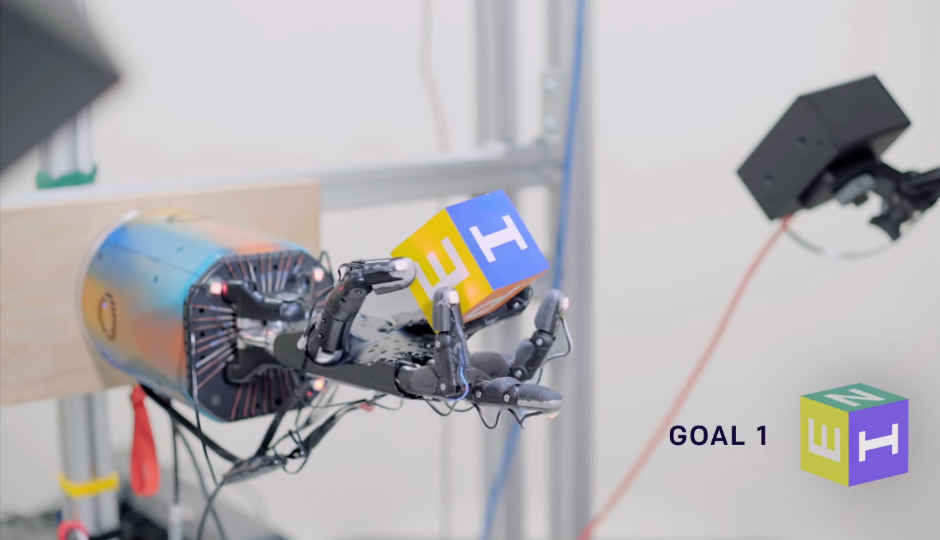Elon Musk’s startup can help robots move their hands like us humans

OpenAI, a Musk-founded startup has a system that learns to be more dexterous all by itself.
It goes without saying that the thing most capable of being human is human itself. It’s something we believe will continue to stay this way for a long time to come. However, it’s not what the engineers at OpenAI, a nonprofit startup founded by Elon Musk, want to believe. That’s because they’ve recently trained a robotic system called Dactyl to rotate and orientate a cube. They’ve achieved this by using about a hundred years’ worth of simulated experience.
To demonstrate Dactyl’s ability to learn to be more dexterous and prehensile using its artificial intelligence system, OpenAI hooked up Dactyl to a Shadow Dexterous Hand, a humaniform robot hand system developed by The Shadow Robot Company. Using the cameras on the robot hand, the system was able to track the hand’s fingertips in real-time to figure out the best way to manipulate a plastic letter cube in any given situation. According to a report by The Inquirer, the AI system uses the same general purpose machine learning algorithm as the AI system that learnt to play Dota 2 like human beings.
The AI system learns and improves using a machine learning training model called domain randomisation, with which it performs real actions instead of repeated trial-and-error-based attempts in a static environment. It’s a more practical system that’s similar to our own way of learning things as humans. “Without this randomization, it would just drop the object all the time because it wasn’t used to it,” said Matthias Plappert in a comment to The Verge, one of the engineers involved in the project.
“Dactyl learns to solve the object reorientation task entirely in simulation without any human input. After this training phase, the learned policy works on the real robot without any fine-tuning,” noted OpenAI’s engineers, adding that “dextrous manipulation using traditional robotics approaches” has been slow previously and that “current techniques remain limited in their ability to manipulate objects in the real world”.
Despite this comment, OpenAI apparently overcame this challenge with its Dactyl. According to the startup, simulations like the one done on Dactyl help figure out hand movements that the machine wasn’t trained to do. We have no idea what OpenAI plans to do with the system, but we’re betting this advancement will help in the overall effort to get robots to behave in a more human fashion.
Vignesh Giridharan
Progressively identifies more with the term ‘legacy device’ as time marches on. View Full Profile





